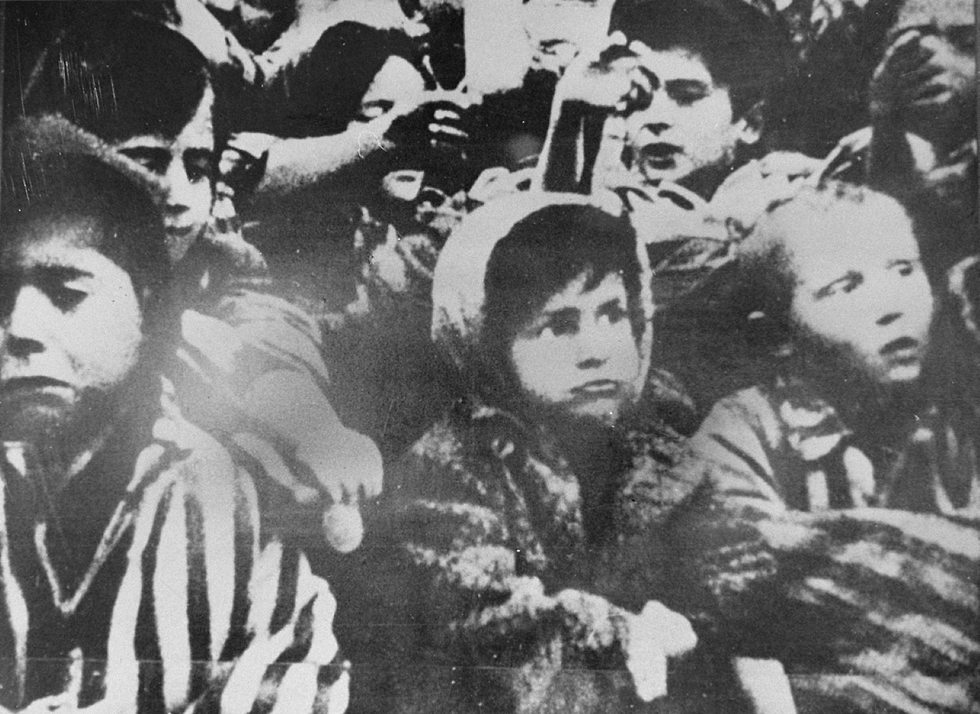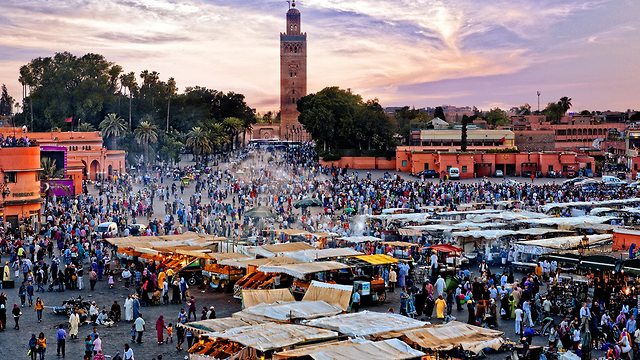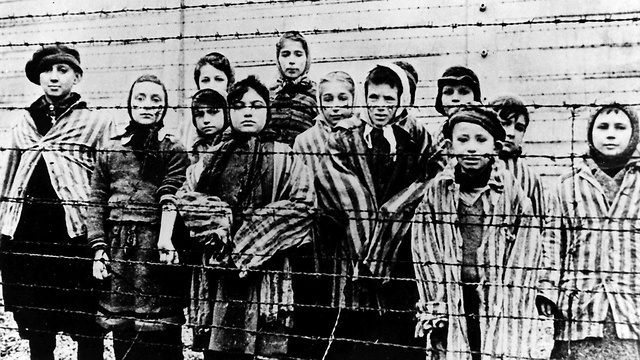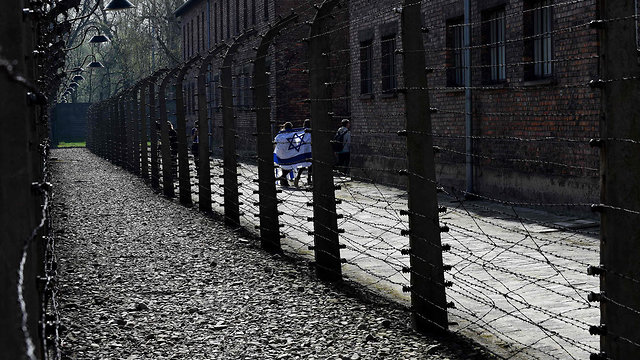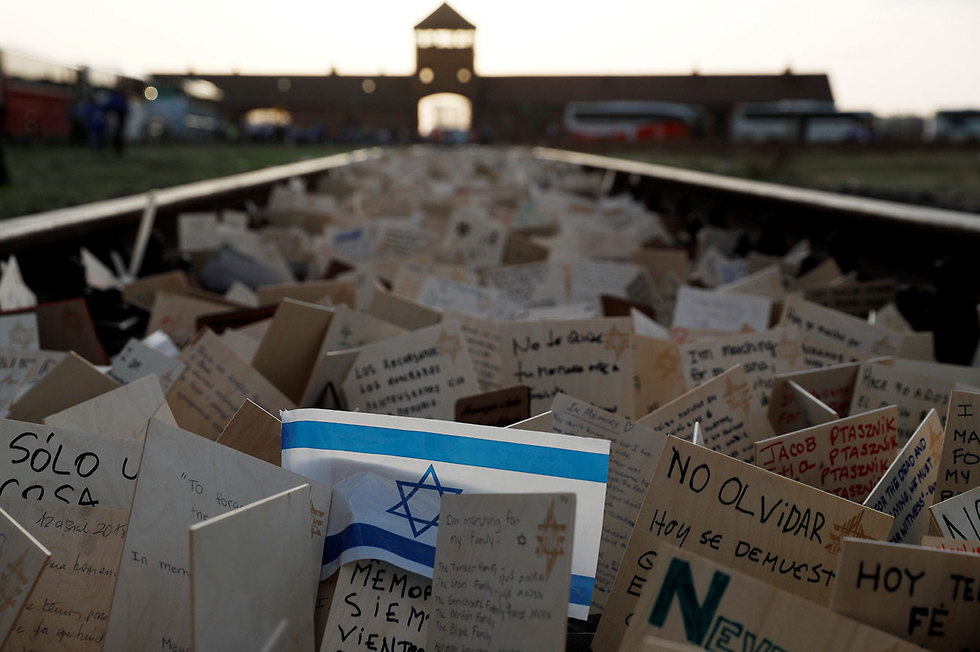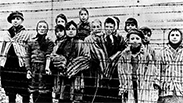

Morocco adds Holocaust studies to educational curriculum
Rabat’s decision to teach the Holocaust is the first time an Arab state takes such an initiative, marking a turning point in what some analysts see as shifting Arab perspectives. As for the Palestinian perspective? Though they might recognize the Holocaust, expert says they have no true empathy towards the horrific genocide.
Morocco’s King Muhammad VI has recently decided to integrate the study of the Holocaust into the country’s educational curriculum.
Moroccan Education Minister Said Amzazi publicly announced the king’s decision during a round table discussion on the sidelines of the United Nations General Assembly in New York in September.
According to Le Desk, a Moroccan news website, Amzazi relayed the king’s message regarding the matter, saying that anti-Semitism is the “antonym of freedom of expression. It manifests the negation of the other and is an admission of failure, insufficiency and the inability to coexist."
“This is the anachronistic return to a mythical past. Is this the past that we want to leave as a legacy for future generations?" the education minister said.
“For all that, the battle against this plague cannot be handled carelessly. It is fought neither with the military nor with money; it above all depends on education and culture. This battle has a name: education. And in the interest of our children, it is important for us to win it because they will be the beneficiaries and our ambassadors in the future,” Amzazi added.
Israeli MK Michael Oren (Kulanu) immediately praised the decision on Twitter. “Morocco’s King Muhammad V sent a profound moral message to the world. Anti-Semitism & Holocaust denial is rising in the West; the leader of a proud Arab country is introducing Holocaust education into Moroccan schools with the goal of fighting anti-Semitism. There is indeed hope,” he tweeted.
Le Desk also reported that Morocco had considered incorporating Jewish-Moroccan history, as well as Holocaust studies, into its educational system back in 2008. The government, however, failed to devise a concrete plan toward that end.
But in more recent years, Moroccan educational authorities began to collaborate with other institutions, notably the Holocaust Memorial Museum in Washington, to develop an appropriate curriculum and pedagogy—one that includes Holocaust studies with the general aim of countering racial hatred.
Morocco’s decision marks a turning point in what some analysts see as shifting Arab perspectives toward the region’s Jewish community, although it is unclear how teaching about the Holocaust could translate into warmer relations with Israel. The kingdom, like many other Arab countries, does not recognize the Jewish state.
Prof. Meir Litvak, chair of the Department of Middle Eastern and African History at Tel Aviv University, told The Media Line that in the Arab world the general view on issues surrounding the Holocaust “has always been ‘whatever happened to the Jews in Europe was a European affair. Europeans were perpetrators and the Jews were victims. But the real price was paid by the Arabs when Israel was established.’”
Therefore, he explained, attitudes among Arabs toward the Holocaust were often seen as part and parcel of the conflict with Israel, and not as an event in itself. This led to various views of the Holocaust on a spectrum from total or what is called “soft” denials of it, to sometimes justification of it, as well as various equations between Zionism, Judaism, and Nazism, or between Israel and Nazi Germany.
Many Arabs also believed that Israel benefited from the Holocaust, which the Israelis used to gain political support and money.
“But starting in the 1990s, we see a different and minority view emerging among some Arab intellectuals—especially many liberals, many of whom lived in the West—which held that ‘there was a Holocaust, it was horrible and we should try to understand and accept it,’” Litvak said.
It happened for two reasons, he explained. First, these intellectuals felt that to be part of the civilized world, Arabs needed to accept and recognize the Holocaust. Second, to make peace with Israel, they deemed it important to understand how Israelis viewed such a tragic event in Jewish history.
“But this is still, unfortunately, a minority position in the Arab world,” Litvak added.
Morocco’s decision, he concluded, “is significant because it is the first time an Arab state takes such a courageous decision. But how much impact it will have on other Arab countries remains uncertain as Arab governments now have other matters to attend to. Also, raising the issue would clearly arouse the anger of Islamists.”
Dr. Ido Zelkovitz, an expert on Palestinian history and politics and a Policy Fellow at the Mitvim Institute, told The Media Line that “by and large, the Holocaust has played a major role in Palestinian discourse regarding Israel and Zionism.
“The Palestinians have used it in the past—and perhaps also in the present—to describe themselves as ‘the victims of the victims,’” Zelkovitz said, adding that “the issue of victimization is a central pillar of modern Palestinian identity.”
But in the last few years, he added, we are seeing progress among Palestinian elites in the way they are approaching the topic. “We saw delegations of Palestinian activists who came to explore Yad Veshem and later even published their impressions of the visit,” he added.
The Holocaust has also played a large role among Palestinian politicians in their efforts to better understand Israelis, Zelkovitz explained, recalling that Palestinian Authority President Mahmoud Abbas wrote a 1984 book on how the Nazi-perpetrated Holocaust had been exaggerated by Zionists for political ends.
“Though he didn’t deny the Holocaust in the book, he vastly underestimated the number of its victims. One can argue that this is a form of Holocaust denial,” he contended.
“From the Palestinian perspective, I don’t see any true empathy when it comes to the Holocaust and its implications, but there is an understanding of how the Palestinians can use the event in their political calculations with the Israelis,” Zelkovitz concluded.
“But this is a sign that in fact the Palestinians already recognize the Holocaust. And maybe in the future, from recognition they can move to the next step of perhaps not compassion, but a deeper understanding of it.”
Article written by Terrance J. Mintner
Reprinted with permission from The Media Line














